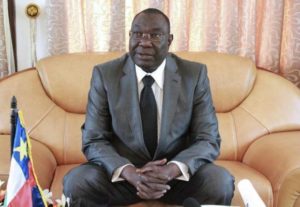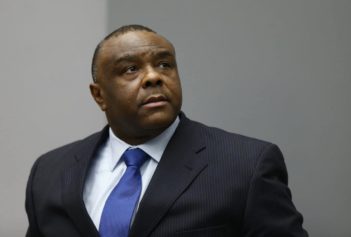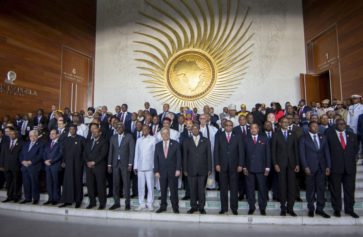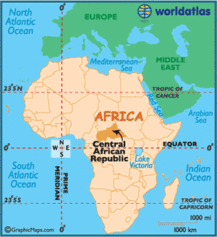
There has been growing pressure for Djotodia to step aside and the resignation should help placate the armed militias who have used violence to seek his ouster.
However, his departure could also create an even greater power vacuum in a land that has long known coups and dictatorship.
Ahmat Allami, the secretary-general of the Economic Community of Central African States, made the announcement following a summit in neighboring Chad on the crisis. Legislators from Central African Republic also were flown to the Chadian capital of N’Djamena on Thursday to take part in the discussions.
Djotodia’s departure leaves the country in the hands of a weak transitional government. Prime Minister Nicolas Tiangaye, a longtime opposition leader prior to the March 2013 coup, is also stepping aside, Allami said.
Central African Republic has long been one of the world’s most unstable countries.
The March 2013 coup brought to power heavily armed rebels, who then proceeded to carry out atrocities against civilians.
The rebels are mostly from the minority Muslim population and hail from the country’s long-marginalized north, and the resentment toward their abuses transformed the conflict into one with religious undertones.
In early December, a Christian militia backed by loyalists of ousted President Francois Bozize attacked the capital.
In the violent aftermath, more than 1,000 people were killed and nearly one million fled their homes in fear. An estimated 100,000 people alone have sought shelter at the airport guarded by French troops.
Former colonizer France has sent some 1,600 troops in an effort to stabilize the country and an African peacekeeping force has provided thousands of additional soldiers.
However, violence continues to wrack the capital of Bangui. Muslims who are suspected of collaborating with Djotodia’s rebellion have been stoned to death in the streets and their bodies mutilated.
Source: cbc.ca


